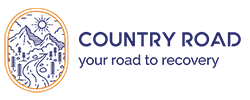There aren’t many Americans these days who haven’t had someone they love snatched up by the grip of opioid abuse. By now, we know that the opioid epidemic is real and Big Pharma is largely to blame. Just a few months ago, the company behind OxyContin was sentenced to a $4.5 billion fine for pushing the dangerous drug on an innocent public. Millions have died or become addicted to OxyContin in recent years, and that’s spread to other opiates and opioids like heroin, Vicodin, and deadly fentanyl, too.
If you or a loved one has struggled with addiction to opioids or opiates, you might be at the point of having lost all hope. But, just as surely as opioid addiction is devastating and powerful, recovery is possible — if you have a little bit of help.
What are opioids and opiates?
Opiates are drugs built around the chemical compound extracted from the poppy plant. Opioids are a version of opiates that are constructed in a lab instead of a flower field. They are most commonly known by their street names: opium, morphine, codeine, heroin, Vicodin, OxyContin, Dilaudid, Percocet, fentanyl, carfentanil, and several others.
What do opioids like OxyContin do?
Opioids and opiates bind to the opioid receptors in the brain, producing a calming and pain-killing effect. For that reason, they are often prescribed by doctors as pain medication, even though they have a high potential for abuse and addiction. Even knowing that these drugs are addictive, though, can’t stop someone from getting hooked.
Making things worse, for years many doctors and patients were told that OxyContin was not as addictive as other opioids. By the time people realized it was dangerous, it was too late. Millions had their lives ruined.
How do you know if you’re addicted to opioids or opiates like OxyContin and heroin?
It can be hard to know when you’ve passed the line from “normal” use to addiction — especially if you are taking a drug as prescribed. The clearest sign that you are developing an addiction is if you start to experience withdrawal symptoms when you’re not taking your pills. That can include things like anxiety, problems sleeping, nausea, chills, a runny nose, flu-like symptoms, and muscle aches and pains.
You can also take a long, hard look at your life to see the effects or your use: Are there other signs of addiction you might be missing? People addicted to opioids often experience issues like financial problems, trouble at work, personality changes, or relationship stress.
You’re never going to see a bright red line when you cross over into addiction, though, so if you’re waiting for that unmistakable moment, it’s not coming. In recovery, we say, “The bottom is where you stop digging.” You can stop using opioids whenever you feel like you’ve had enough. You don’t have to hang around and see how bad it gets if you continue.
With that said, if you have tried to quit and failed, or told people that you were going to quit but given up, you might need professional help getting clean.
Addiction is nothing to be ashamed of. It is a disease, and it’s not your fault. No matter the reason you started using opioids, they are very addictive drugs that can take hold of your life — if you let it.
Is OxyContin dangerous?
Of course, opioids — whether injected or in pill form — can easily lead to overdose. That’s even more true if you’re buying your drugs from anywhere other than a reputable pharmacy or medical establishment. If you’re not, you have no way of knowing what dangerous ingredients could be lurking in your hit. Increasingly, fentanyl is folded into heroin, off-market Oxy, and other opioids. Much more powerful than others in this class, fentanyl can kill you almost instantaneously.
Even if you don’t end up in an overdose, opioid use causes health problems like infections, abscesses, and other diseases. It can trash your mind, motivation, and mood. Luckily, if you seek treatment before it’s too late. A lot of these can be avoided.
How to quit using opioids?
If you think you may have a problem with opioids, it’s not as hopeless as you may think. Quitting opioids is certainly not easy, but you don’t have to do it alone. In fact, you’re more likely to be successful if you reach out for some kind of help or support.
Admitting to yourself that you need to make a change is a huge first step. That can take years in itself, and from there, it can be years before you decide to do something about it. When you’re finally ready for help, seeking treatment from professionals will give you the best chance at recovery.
Most people addicted to opioids find that residential drug addiction treatment, or inpatient care, is the most efficient first step, but inpatient rehab is not for everyone. Some clients choose to start with Partial Hospitalization Programs (PHP) or outpatient programs, which are less intense and don’t require you to live on-site at a facility. There also are a variety of other therapies and support groups available, including individual and group counseling, or Twelve-Step programs. In short, if you truly want help, you can get it.
In fact, all it takes is a phone call or a chat, if you think that’s you. Many of us have been in your shoes and we’re ready to get you started on your own road to recovery from opioid abuse.


